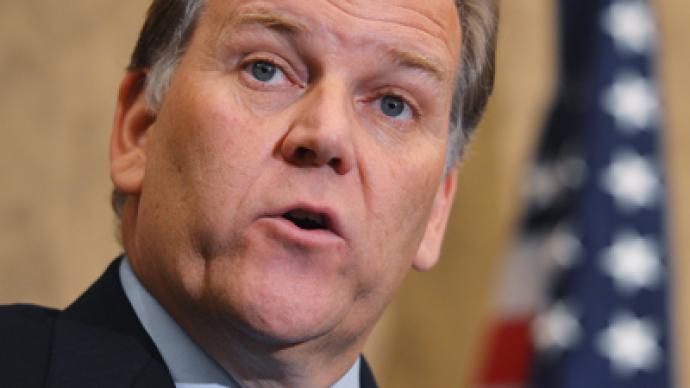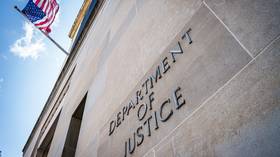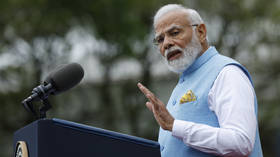CISPA 2.0? Cyber-bill author says Congress has 'rekindled' interest in his failed legislation

It’s only been a few short months since the Cyber Intelligence Sharing and Protection Act evaporated before it could be put on the books, but the author of CISPA says reemerging threats could let his legislation finally see the light of day.
Rep. Mike Rogers (R-Mich.), the chair of the US House Intelligence Committee and a co-author of the controversial CISPA bill, told an audience at the Chamber of Commerce last week that his failed cybersecurity legislation might soon be brought back up for discussion. Without naming names, Rep. Rogers said a new and undisclosed cyberthreat from one of America’s adversaries could lend to lawmakers in Washington once again considering CISPA, an act that if passed would have created unheard-of ties between the federal government and private sector businesses tied to the Internet industry.Rep. Rogers’ CISPA stood to let third-party businesses openly share personal information entered by US consumers with the government in exchange for enticing incentives, all under the allegedly necessity of thwarting cyber-attacks assumed to be heading to America. CISPA passed the House of Representatives back in April, but lawmakers in the Senate failed to see eye-to-eye when drafting their own cybersecurity act, yielding a stalemate and thus a serious setback for Rep. Rogers and others intent on authorizing a bill to bring just about any action conducted over the Web into the hands of the government.Before being brought to a halt, CISPA managed to attract a fair share of opposition from privacy groups and civil liberty organizations, as well as some leading lawmakers from Washington. Presidential hopeful Rep. Ron Paul (R-Texas) said the bill “represents an alarming form of corporatism as it further intertwines governments with companies like Google and Facebook,” and cautioned that “It permits them to hand over your private communications to government officials without a warrant, circumventing the well-known established federal laws like the Wiretap Act and the Electronic Communications Privacy Act.”Following Congress’ failure to pass a cybersecurity bill of any sort, the White House confirmed in recent weeks that an executive order is in the works to get the ball rolling in terms of establishing a similar act. From Washington last week, though, Rep. Rogers said he thinks Congress will come back to his CISPA bill, or perhaps borrow heavily from the act in order to finally find common ground between the House and Senate.From the Chamber of Commerce, Rep. Rogers said his colleagues in the Senate have been made aware in recent days of a plan to target America’s e-grid and that he expect renewed talks in Washington to pass a cybersecurity bill out of the Legislative Branch."There was a very good meeting with some members of the Senate, some briefings on what appears to be a new level of threat that would target networks here from an unusual source that has some very real consequences if you are not able to deal with it," Rep. Rogers said. "Because of that particular brief, I think it rekindled peoples' interest in trying to get something done here in lame duck.""Given this new round of, I would argue new threats, that maybe we can move forward and get the Senate to move a little bit," Rep. Rogers added.Later, speaking specifically of Iran, the congressman said, “I think they’re closer than we would all like them to be to come in and cause trouble in our financial services network.”"There are new capabilities coming online every day, so the Chinese are great at stealing information and you have other nation-states that are just developing capabilities to do attacks or denial of service, so you can imagine, our concern is nation states are developing capability to do just that beyond the normal group of [countries] that we often talk about,” he added.In recent weeks, US officials have suggested that a cyber-attack waged against some of America’s biggest financial institutions may have originated from hackers in the Middle East, and the White House went public with claims that an undisclosed entity attempted to infiltrate the computer networks at 1600 Pennsylvania Avenue recently but was unsuccessful.Meanwhile, both Google and Iran cautioned computer users last week that they were being targeted by cyber-criminals assumed to be from enemy nation-states.















